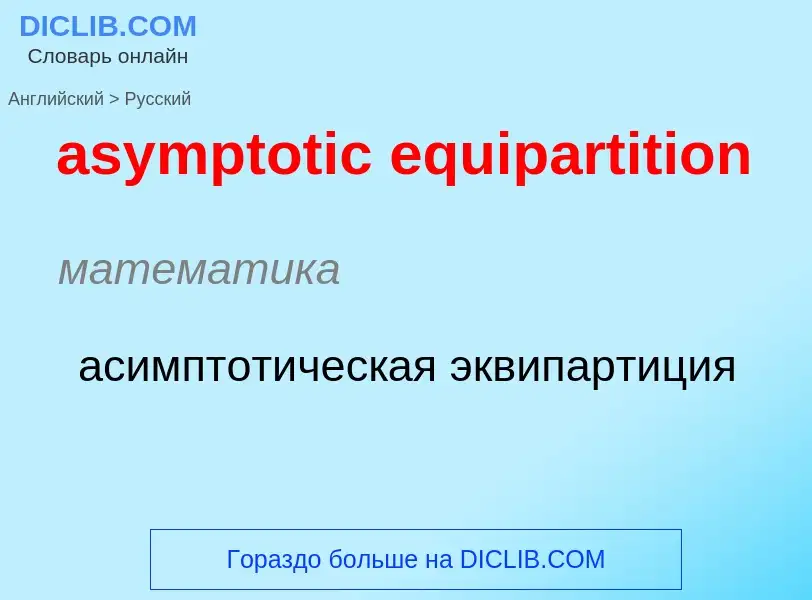Übersetzung und Analyse von Wörtern durch künstliche Intelligenz ChatGPT
Auf dieser Seite erhalten Sie eine detaillierte Analyse eines Wortes oder einer Phrase mithilfe der besten heute verfügbaren Technologie der künstlichen Intelligenz:
- wie das Wort verwendet wird
- Häufigkeit der Nutzung
- es wird häufiger in mündlicher oder schriftlicher Rede verwendet
- Wortübersetzungsoptionen
- Anwendungsbeispiele (mehrere Phrasen mit Übersetzung)
- Etymologie
asymptotic equipartition - Übersetzung nach russisch
математика
асимптотическая эквипартиция
экспериментирование
свойство асимптотической равнораспределенности
Definition
Wikipedia
In information theory, the asymptotic equipartition property (AEP) is a general property of the output samples of a stochastic source. It is fundamental to the concept of typical set used in theories of data compression.
Roughly speaking, the theorem states that although there are many series of results that may be produced by a random process, the one actually produced is most probably from a loosely defined set of outcomes that all have approximately the same chance of being the one actually realized. (This is a consequence of the law of large numbers and ergodic theory.) Although there are individual outcomes which have a higher probability than any outcome in this set, the vast number of outcomes in the set almost guarantees that the outcome will come from the set. One way of intuitively understanding the property is through Cramér's large deviation theorem, which states that the probability of a large deviation from mean decays exponentially with the number of samples. Such results are studied in large deviations theory; intuitively, it is the large deviations that would violate equipartition, but these are unlikely.
In the field of pseudorandom number generation, a candidate generator of undetermined quality whose output sequence lies too far outside the typical set by some statistical criteria is rejected as insufficiently random. Thus, although the typical set is loosely defined, practical notions arise concerning sufficient typicality.

